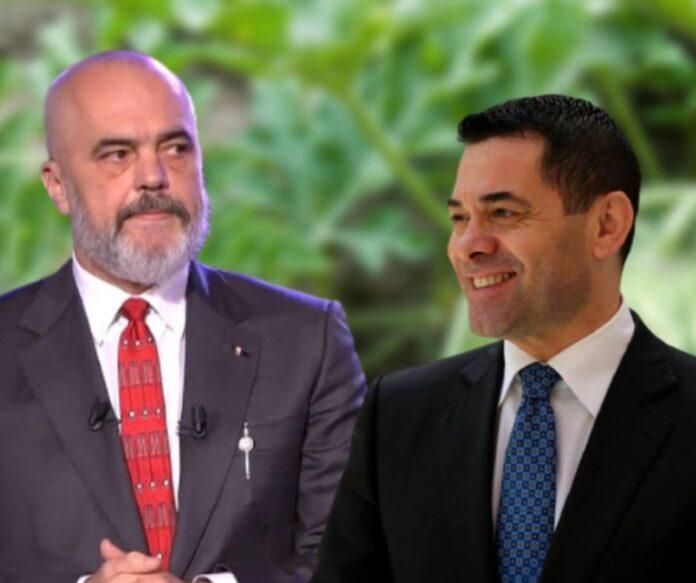Nga Alfred Lela
Intervista e Arben Ahmetajt, për Çim Peka Live në SyriTV, mund të ketë shuar kureshtje, nga ato që nuk i kënaq dot as Big Brother, por ka hapur edhe disa plagë. Jo vetëm te të përmendurit, ata që u nënkuptuan, por krejt ngrehina e Partisë Socialiste, ajo që Edi Rama pagëzoi si “Rilindja” në vitin 2013.
Ajo që tha Ahmetaj ‘kur ta marrin vesh shqiptarët se Edi Rama dhe Partia Socialiste nuk janë e njëjta gjë, ndoshta do të jetë shumë vonë”, nuk ka si të jetë e vërtetë. PS dhe Rama janë, në fakt, e njëjta gjë, por se çfarë gjëje janë, ky është debati.
Të paktën sipas asaj që na tha Ahmetaj- e të tjera që me gjasë mund të thotë në vijim-, Rama nën strehën e Rilindjes dhe kjo nën të PS, janë përgjegjës të drejtpërdrejtë për Shqipërinë si vend, apo për shndërrimin e atdheut të përbashkët në atë që njihet si ‘shtet i dështuar’ (failed state).
Edhe pse incineratorët morën pjesën më të madhe të intervistës së gjatë, mbi xeherorët e tyre shkëlqyen diamante të tjerë, që e shpjegojnë strukturalisht atë që Rilindja i ka bërë këtij vendi përgjatë një dekade. Ahmetaj zbuloi psh një qëndrim të tijin mbajtur në një retreat qeveritar, që lidhej me mosdakordësinë me kanabizimin e vendit. Mundet ose jo të jetë e vërtetë, por çka vlen është se, një socialist ka menduar si shumë zëra opozitarë ose të pavarur që, thuajse me dëshpërim, i kanë rënë kambanave të kanabizimit të vendit për kaq vite rresht.
Vendi po paguan sot haraçin dhe haramin e atij vendimi anti-kombëtar i cili lejoi që industria, bujqësia dhe turizmi kryesor i vendit për 4-5 vjet të ishte mbjellja, përpunimi dhe eksporti i cannabis sativa. Industria e lehtë e cannabis-it krijoi një eldorado të pasurimit të shpejtë që, në këmbim, ushqeu shumë iluzione ekonomike dhe shoqërore. Kur ethja e kanabisit kaloi dhe përfituesit e mëdhenj e diversifikuan ‘portofolin’ e investimeve, duke kaluar në ndërtim apo droga të rënda, çka mbeti ishin ata me peshën e një iluzioni. Meqë Shqipëria nuk j’ua ushqente më, ata morën rrugët e mërgimit. Jo rastësisht, të rinjtë shqiptarë zgjidhnin Britaninë e Madhe, sepse atje mund të punonin në një industri që e njihnin mire: ‘shtëpitë e barit’. Rilindja, pasi e prodhoi, e ricikloi këtë kontigjent, duke kërkuar amnisti fiskale për ata që ministri Damjan Gjiknuri quajti ‘çunat e Londrës’.
Ky ishte kriminalizimi i dytë më i madh që iu bë shoqërisë shqiptare gjatë qeverisjes së Ramës (i pari është kriminalizimi elektoral). Aspak paradoksalisht, gjithë aksioni i pasurimit të elitës së re përreth Rilindjes, u zhvendos te lojrat e fatit, shëndetësia, kriptomonedhat dhe call centers. Të gjitha industri efemere, diçka mes shërbimeve dhe teknologjisë (IT). Të vetmet ‘industri të rënda’, që u përvijuan si fitimprurëse, ishin ndërtimi dhe mbetjet. Kullat e larta, që e vranë pëfundimisht sky line-in e Tiranës, dhe gjithashtu mushkëritë e qytetit, dhe tre inceneratorët (virtualë), jo vetëm prodhuan të ardhura për një grusht njerëzish të lidhur me qeverinë, por edhe kundërthënie tronditëse.
Secila prej këtyre industrive pati martirët (viktimat) dhe heronjtë (famëkëqinj që të dy) e vet. Një ilustrim i të parëve është Ervis Martinaj dhe i të dytëve Amant Josifi (vini re se të parët janë kundër Ramës dhe të dytët të tijtë). Pati, sigurisht, edhe kategorizime të mesit të tabelës, si psh Ilir Beqja, që nuk u bë as viktimë dhe as hero, duke mbetur, sipas gjithë gjasave, një hajdut i shtrenjtë.
Arben Ahmetaj është diçka mes të dyjve, një gjysmë-viktimë dhe një gjysmë-hero, një qenie e ndërmjetme në mitologjinë e mbrapshtë të Rilindjes, në krye të së cilës (Zeus, siç e quajti bilalesha e qeverisë) qëndron Edi Rama.
Arben Ahmetaj, në intervistën e të enjtes, shfaqi pak a shumë, vullnetin për të mos e lënë Rilindjen që ta hante (ai përmendi vdekjen, sipas një motivi të huazuar nga seriali “Vikingët”-një fis i lashtë nordik, edhe ata viktima dhe heronj të historisë). Këtu, keni pak a shumë një rimarrje të temës së ‘revolucionit që ha bijtë e vet’. Ish- zv/kryeministri u shfaq mbrëmë në një rol të përmbysur të ngjarjeve dhe të historisë: biri i revolucionit (Rilindjes) që kërkon të hajë revolucionin.
Ky është një epilog tipik shqiptar, sepse historia na mëson se e kundërta është norma: revolucioni i ha bijtë e vet. Por nuk është epilogu (mbyllja), por prologu (nisja) që e bën të ndryshme Rilindjen nga revolucionët e tjerë. Ajo nisi mbi premisën jo për ta bërë Shqipërinë, por për ta sunduar apo zhavtur. Revolucionet, si rregull, edhe pse degjenerojnë rrugës (përfshi të komunistëve të Enver Hoxhës) u nisën mbi dëshirën apo iluzionin për të bërë diçka më të mirë.
Slogani informal i Rilindjes ishte ‘aleanca e qelbësirave’. Pra, jo një bashkim vullnetar i më të mirëve për më të mirën, siç janë kryesisht këto nisma, por kush të mundet, dhe me çdo kusht, për të marrë pushtetin.
Kjo prodhoi këtë cyborg qeveritar që ekspozoi Arben Ahmetaj në rreth 2 orë intervistë. Ish-numri 2 i qeverisë së Rilindjes, u kthye si biri që vjen për të ngrënë revolucionin, shenjë refuzimi për të përfudnuar vetë në nofullat e tij.
Në këtë pikë ai mund të jetë një trim, një i marrë ose, pse jo, një pioner. Sidoqë të jetë aktori, akte të tilla zakonisht paralajmërojnë fundin e revolucionit. Nuk ka rëndësi nëse ai i ha të bijtë apo të bijtë e hanë atë. Në çdo rast, dhe pavarësisht siluetës që ka viktima, është era e qelbësirës që mbetet dhe duhma e saj që na e bën me dije se fundi është afër. Ata që bëjnë zhurmë janë korbat, siç ndodh përmbi të gjitha kërmat.






